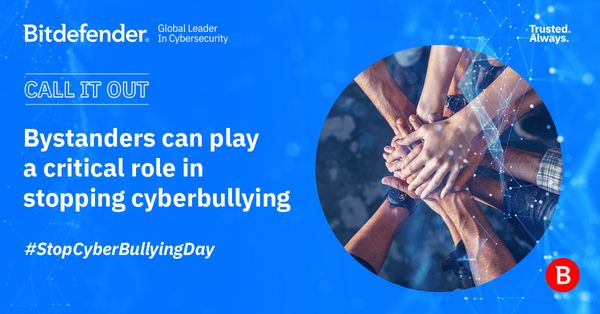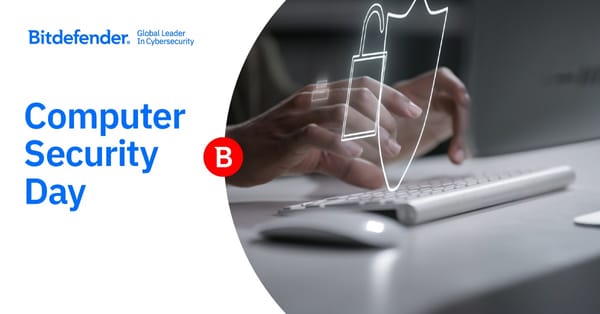“Call it Out” on Stop Cyberbullying Day: How to Be an Effective Bystander in a Cyberbullying Situation

Stop Cyberbullying Day is a global event that aims to raise awareness about bullying online and promote safer, kinder online interactions. It’s a day of unity and action dedicated to encouraging everyone to take a stand against online harassment and commit to supporting those who are affected. By brushing up on how you can be an effective bystander, you can contribute to the mission of Stop Cyberbullying Day today and every other day of the year.
Cyberbullying is an omnipresent issue that can impact individuals of all ages and backgrounds across the internet and its myriad social platforms. Online bullying can manifest in many ways, including posting hurtful comments on social media, sharing embarrassing photos or videos without consent, threatening someone, or spreading false rumors, among many others. These actions can have severe emotional and psychological impacts on victims, and you can choose to either contribute to the problem or help resolve it.
Did You Know?
- 70% of young people have suffered online harassment at some point in time
- Only 10% of teens tell a parent or trusted adult about being harassed online
- More than 60% of young people who have seen someone being bullied online did not intervene
Understanding these statistics highlights the importance of bystanders stepping up to help put a stop to bullying situations.
What is a bystander?
A bystander is an individual who observes bullying but is not the bully or the victim. For example, a bystander in cyberbullying situations can observe abuse via social media posts, messages, or online interactions.
Believe it or not, bystanders can play an important role in stopping cyberbullying by significantly influencing the outcome of such incidents (whether the situation escalates or is defused). By taking small actions, such as offering support, reporting abuse, or encouraging positive dialogue, an active and effective bystander can help stop aggressive or hurtful actions and support the victim.
Bystanders matter, and here’s why:
- They can improve victim wellbeing by reaching out to victims and offering moral support
- Help decrease cyberbullying incidents through online reports
- Create a better digital community by encouraging positive and supportive behaviors
Here are three practical tips on how to make a positive impact :
Tip #1: Listen and Offer Support
The easiest and most immediate way a bystander in a cyberbullying situation can help is to support the victim. This can be as simple as sending a private message to the person being bullied, expressing empathy and solidarity. Showing compassion and validating the victim's feelings can make bullied victims feel supported and reduce their anxiety and any sense of isolation, allowing them to better cope with the situation.
The little things we say can make a huge difference to victims:
Example 1: students who see a colleague being cyberbullied could say, "I read that hurtful post and wanted to let you know I'm here for you."
Example 2: If a work colleague is being harassed in a group chat, you could say, “I read those messages. Are you okay? I'm here if you need to talk.”
Tip #2: Report Abuse
Reporting is another crucial step in addressing online abuse. By reporting cyberbullying, bystanders help remove harmful content from online platforms and hold bullies accountable for their hurtful and inappropriate actions. This not only helps the victims but can also discourage bullies from targeting other people in the future.
Most social media platforms have specific procedures for reporting harmful content:
- Facebook: Follow the instructions in this link or click the three dots next to the post or content you want to report and follow the steps.
- Instagram: Tap the three dots above the post, select "Report," and follow the instructions.
- Twitter: Click on the downward arrow on the tweet, select "Report Tweet," and choose the appropriate reason for reporting.
Here are some examples of how you can help:
Example 1: If you see others sharing inappropriate photos of your friends without their permission on Facebook, report the post using the "Report" link.
Example 2: If another digital citizen is being targeted with hate speech on Twitter, click on the downward arrow related to the offensive tweet, then select "Report Tweet," and choose the appropriate reason for reporting.
Tip #3: Encourage Positive Dialogue
Encouraging positive dialogue is another influential way bystanders can step up in cyberbullying situations. This involves promoting kindness and constructive conversations. For instance, when someone posts negative comments about others, a bystander can cancel them out by sharing positive comments instead or encouraging others to share supportive messages. Inspiring a positive dialogue helps steer the conversation in a different direction and potentially discourage additional negative behavior.
Example 1: If someone posts a hurtful comment about your friend’s or colleague’s style, you could respond with, “As a matter of fact, I think they look amazing! Everyone has their unique style, and that's something worth celebrating.”
Example 2: If you see a friend being ridiculed for their interests or hobbies, you could post, "I think it's great that they are so passionate about something they love, and maybe we can each learn something from it. We should all support and respect each other's interests!"
This Stop Cyberbullying Day, you too can “Call it Out” and offer support to your peers by fostering a safer and more respectful online community that promotes empathy and kindness and stands up for victims!
tags
Author
Alina is a history buff passionate about cybersecurity and anything sci-fi, advocating Bitdefender technologies and solutions. She spends most of her time between her two feline friends and traveling.
View all postsRight now Top posts
How to Protect Your WhatsApp from Hackers and Scammers – 8 Key Settings and Best Practices
April 03, 2025
Outpacing Cyberthreats: Bitdefender Together with Scuderia Ferrari HP in 2025
March 12, 2025
Streamjacking Scams On YouTube Leverage CS2 Pro Player Championships to Defraud Gamers
February 20, 2025
How to Identify and Protect Yourself from Gaming Laptop Scams
February 11, 2025
FOLLOW US ON SOCIAL MEDIA
You might also like
Bookmarks







